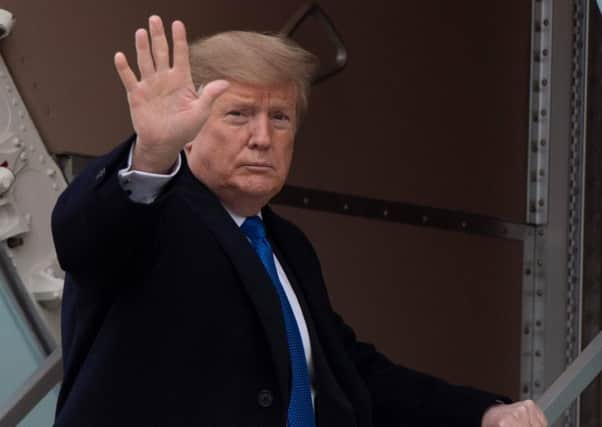China raises tariffs on $60bn of US goods as trade war intensifies


The finance ministry said the new penalty duties of 5 per cent to 25 per cent on hundreds of US products including batteries, spinach and coffee will take effect June 1.
That followed President Donald Trump’s decision on Friday to increase duties on $200bn of Chinese imports from 10 per cent to 25 per cent, saying China had backtracked on commitments it made in earlier negotiations in a dispute over Beijing’s technology ambitions.
Advertisement
Hide AdAdvertisement
Hide AdResuming his messages over Twitter, President Trump warned Chinese President Xi Jinping that China “will be hurt very badly” if it doesn’t agree to a trade deal.
Trump tweeted China “had a great deal, almost completed, & you backed out!”
He insisted the tariffs the US has placed on Chinese goods don’t hurt American consumers, saying there is “no reason for the US consumer to pay the tariffs”.
That came after White House economic adviser Larry Kudlow acknowledged on Sunday that US consumers and businesses pay the tariffs.
“Both sides will pay,” he told Fox News.
Beijing is running out of US imports for penalties due to the lopsided trade balance between the world’s two largest economies. Regulators have targeted American companies in China by slowing down customs clearance for shipments and processing of business licenses.
The new tariffs are likely to hurt exporters on both sides, as well as European and Asian companies that trade between the United States and China or supply components and raw materials to their manufacturers. The increases already in place have disrupted trade in goods from soybeans to medical equipment and sent shockwaves through other Asian economies that supply Chinese factories.
Forecasters have warned that the US tariff hikes could disrupt a Chinese recovery that had appeared to be gaining traction.
Trump might meet his Chinese counterpart during next month’s meeting of the Group of 20 major economies in Osaka.
Advertisement
Hide AdAdvertisement
Hide AdTrump started raising tariffs last July over complaints China steals or pressures companies to hand over technology.
Washington wants Beijing to roll back government support for Chinese companies striving to become global leaders in robotics and other technology. The US and other trading partners say such efforts violate Beijing’s free-trade commitments.
